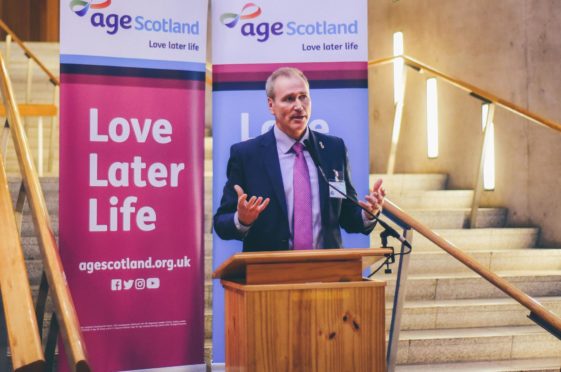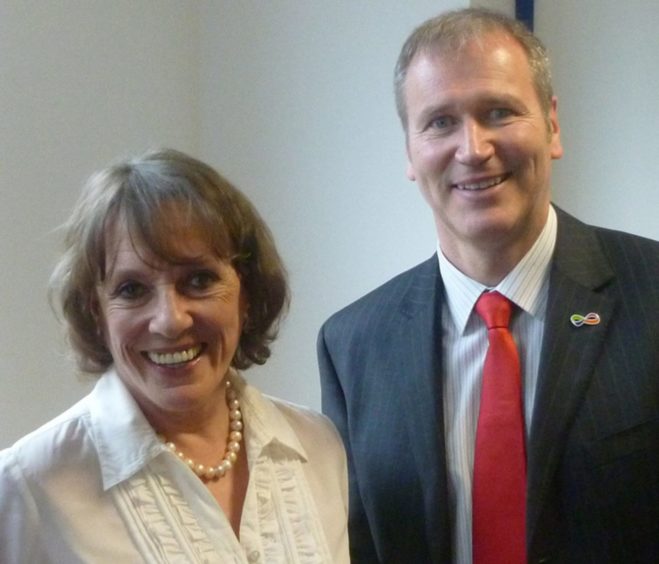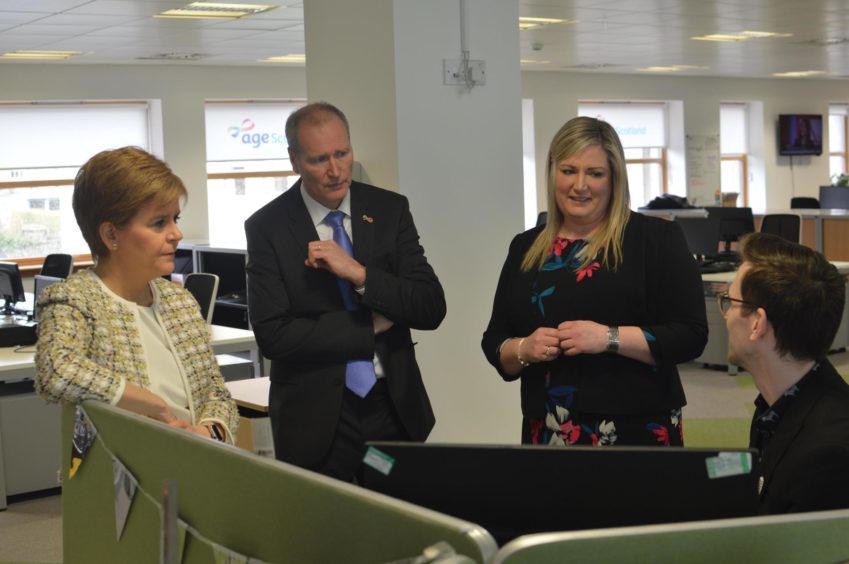A charity boss is urging people not to wait for the next crisis before they reach out and help someone in their community.
Brian Sloan, chief executive of Age Scotland, said one of the questions he often hears is “why did I wait so long?”
And with sister charity Age UK predicting this Christmas will be the loneliest yet, Mr Sloan appealed to everyone to do something today to offer care or assistance.
The stark figures – described as the “tip of the iceberg” by the charity – suggest more than 157,000 over 65s in Scotland expect to feel lonely over this festive period.
We get calls on our helpline where an older person has gone the best part of a week without speaking to anyone. It can be even longer – in one case up to a month. That’s heartbreaking.”
Mr Sloan, chief executive of Age Scotland.
But even before the pandemic restricted our ability to mix with loved ones, Christmas was a lonely time for many. Last year, Age Scotland found that more than 100,000 ate their Christmas meal alone; the year before 65,000 revealed they spent the entire day on their own.
 Our Connect at Christmas campaign has been shining the light on the work being done to tackle isolation in our communities, and Mr Sloan backs the call for action.
Our Connect at Christmas campaign has been shining the light on the work being done to tackle isolation in our communities, and Mr Sloan backs the call for action.
“It generally takes something to prompt the interaction,” he said. “But it should be a societal thing: don’t wait for a pandemic or a weather crisis to offer to help someone.
“Years ago loneliness wasn’t such a huge problem. Families didn’t move away and communities were tighter.
“In small communities, where the village hall and pubs have gone along with the other places that people generally gather – like the corner shop – that all feeds into isolation. If people are living on their own, where do they go to speak to people?
“There was one instance where an older woman went to her local Scotmid every day to buy a loaf of bread. The shopkeeper realised that she was really just coming in every day to have a chat and talk to someone. That’s a common thread.”
Loneliness can impact health, reducing life expectancy and increasing the risk of dementia.
“We can all think of someone in the street or a family member we could help,” Mr Sloan said. “Make that phone call or pick up some shopping.
“We get calls on our helpline where an older person has gone the best part of a week without speaking to anyone. It can be even longer – in one case up to a month. That’s heartbreaking.”
The kindness of strangers can make all the difference
Age UK’s research also revealed that around 94,000 over 65s in Scotland said they wouldn’t have got through the pandemic without the kindness of strangers.
About 219,000 people had someone to collect prescriptions or medicines and 303,000 to do essential shopping.
And while nearly 460,000 older people said they had someone to call them for a chat, that wasn’t the case for everyone – prompting Age Scotland to launch a new Friendship Line.
This is an expansion to the charity’s existing phone line which provides information on money and legal matters, care homes, the flu jab, and ever-changing coronavirus guidelines.
Laura Stenhouse, the charity’s telephony manager, said it has been a lifeline to many, with nearly 50 volunteers making regular weekly calls.
“People aren’t meeting in the traditional way, so I think this winter – when we normally see calls to our information line dip – will be busy,” she said.
“The Friendship Line is there if people need us. It’s as simple as giving us a call. We’ll sign them up – it’s just that initial step that people need to take.”
Friendship Line can be “rewarding” for all
Once the charity has gone through safeguarding checks, they arrange a time to call the person each week.
“We phone them – it’s not down to them to phone us,” Miss Stenhouse said. “Our advisers will chat about anything they want. We ask them to tell us their story, there are some fascinating people out there with a wealth of knowledge.”
Age Scotland also runs Friendship Circles, which link people with similar backgrounds or interests – including a weekly virtual get-together for veterans.
Miss Stenhouse praised the volunteers who give their time to the cause.
“It’s really nice working with people who want to make a difference,” she said.
“You can’t get away from the fact that sometimes people are really, really low. But sometimes those are the best cases for our volunteers because a few months down the line they see the impact they’ve made to that person, simply by dedicating their time and having a conversation. It can be very rewarding.”
To find out more about Age Scotland, or to donate to their Friendship Line, visit www.age.scot/makethecall
The Friendship Line is available on 0800 1244222 Monday-Friday, 9am-5pm.


